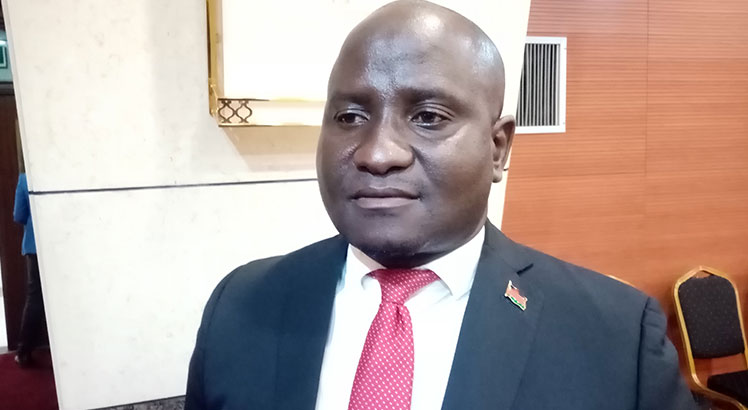Neef registers K13.6 billion loss
The National Economic Empowerment Fund (Neef) has registered an after-tax loss of K13.6 billion with the status of non-performing loans also increasing.
The loss comes on the heels of another loss of K6.03 billion recorded as at September 30 2022.
The Ministry of Finance and Economic Affairs 2023 Annual Economic Report released as part of the budget documents has attributed the loss and poor performance to weak systems and a high default rate.
Reads part of the report: “The poor performance has been attributed to weak management information system [MIS] operating system-banker’s realm, poor quality of loan portfolio as a result of high default rate which resulted in high provisions for bad debts and lack of capacity in good credit management skills and integrity.”
Compounding the situation further is a 63 percent recovery rate which is lower than the minimum 80 percent rate that the Reserve Bank of Malawi recommended to the institution.
Neef’s loan impairment provisions registered an increase of 14 percent from K32 billion in March 2022 to K39 billion in September 2022, meaning that the percentage of non-performing loans is increasing.

Despite this situation, Neef has registered certain gains in the 2022/23 financial year such as a 48 percent growth in the interest-earning assets due to portfolio growth from K32 billion as of March 2022 to K48.3 billion as of September 2022.
This has enabled it to clear its arrears and re-invest in loan disbursements.
Besides, Neef’s loan portfolio also registered a growth of 16 percent from K41 billion in March 2022 to K47 billion in September 2022, mainly due to the disbursements of K13 billion in the period.
These disbursements were financed by a shareholder capital injection of K7 billion and K6 billion.
“Loan repayments of K7.6 billion were recorded in the period representing an average collection rate of 63 percent which is below the regulator’s [RBM] of 80 percent,” further reads the report.
But while Neef has been struggling to reach RBM’s recommended benchmark, the institution’s net loan portfolio registered a growth of 23 percent from K8.9 billion recorded in March 2022 to K10.9 billion in September 2022.
When asked what the institution is doing to rectify the gaps leading to such losses, Neef public relations officer Desmond Lusinje on Tuesday asked for more time before responding.
Nation on Sunday followed up with Lusinje on Friday but did not get any response
Public Accounts Committee (PAC) chairperson Mark Botomani in a separate interview expressed concerns with the loss.
He said: “This fund should have been one of the best managed revolving funds considering that government has invested a lot in terms of putting systems in place, including change of management. The expectations are, therefore, high.
“We even hear that Treasury plans to recapitalise Neef with K5 billion, according to their presentation at our cluster this week. This needs proper accountability if people’s trust is going to be maintained.”
Governance expert Boniface Chibwana, however, described the loss as regrettable, saying it shows that some basic things were not done right.
He said: “Are the people trained in financial management before disbursement of loans? Were the people submitting viable business proposals that were verifiable? Are there monitoring mechanisms in place for debt recovery? Are these loans given to people that really qualify for them?
“If these variables were not followed then it is not surprising that we are in this huge debt. The K13.6 billion loss is huge and there is a need to examine the conditionalities of the loan.”
Chibwana, who is also Catholic Commission for Justice and Peace national coordinator, recommended that the programme be put to a halt to allow for proper evaluation.
He said once the programme resumes, there should be a robust monitoring of beneficiaries to assess the type of businesses they are conducting.
“Then, defaulters should be made to pay through enforcement of the legal framework guiding the funds,” said Chibwana.
In October 2022, Neef stopped disbursing loans due to lack of funds after under-collecting from beneficiaries.
This was revealed when Neef management met the Parliamentary Committee on Trade, Industry and Tourism on October 20 2022. At the time, Neef anticipated to collect K31.5 billion, but only collected K19.5 billion.
Government committed to pump in K75 billion by 2024 which will have supported 300 000 people, creating thousands of jobs.
Neef has already received over half of the target.
From 2005 to 2020, about K20 billion was allocated to the institution then called Malawi Enterprise Development Fund
and before that the Malawi Rural
Development Fund.
The loans, with an interest rate of two percent per month, range from K250 000 to K250 million, an improvement from the past when they ranged from K50 000 to K75 million with an interest of four percent per month.
The age bracket for beneficiaries also was revised as they now benefit people aged between 18 and 75, while in the past it targeted the ages between 18 and 60.n





